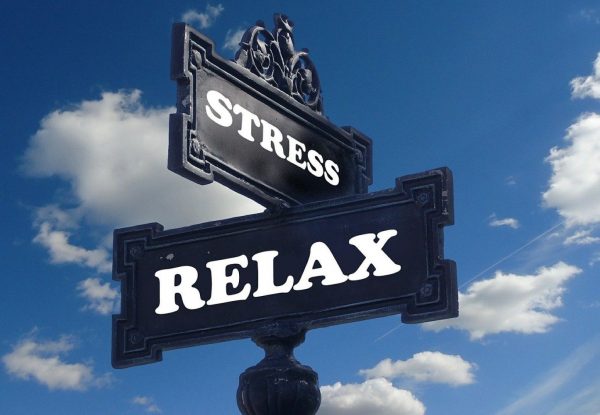Today’s modern world is full of stressors. We are bombarded with stressful situations all day long, day after day, month after month.
Money woes, problems at work, health concerns, the death of a loved one and other troubling personal events top the list. But it doesn’t stop there. Headlines are riddled with news of wars, random shootings, natural disasters, and other events that often lead to mass casualties. This just adds to our stress levels.
But our bodies aren’t built to be stressed out all of the time. All of these stressors produce a “fight or flight” response, a built-in reaction that ensures our survival.
The problem is, all of that stress isn’t just affecting your mental and emotional well-being.
Here’s What Stress Does to Your Body…
Whether short- or long-term, stress also turns your body against you – producing physical symptoms like aching muscles, headaches, digestive complaints and cardiovascular issues.
Back and neck pain. As part of the “fight or flight” response, your body’s muscles tense up. This is your body’s way of preparing either to stand and protect itself (fight), or run away (flight).
However, when you’re in a constant state of stress, these muscles remain tense and tight.
This can leave your back and neck feeling stiff and sore, making it hard to stay active. And if you start worrying about the cause of the pain, it can make things even worse. It just causes more stress, making the muscles even tighter and increasing the severity of the pain.
Frequent headaches. The “fight of flight” response also releases chemicals in your brain. These can cause vascular changes in your brain’s blood vessels. This, in turn, can trigger a stress headache or migraine.
Those tight muscles in the back, neck and scalp only add to it. Plus, people who are stressed often clench their jaws. Others tend to grind their teeth. Any single one of these factors can be the spark that sets off a headache.
Digestive complaints. People who carry high levels of stress tend to experience general discomfort after meals. They are also more likely to develop acid reflux and irritable bowel syndrome.
This is due to a simple bidirectional pathway called the “gut-brain axis.” Simply put, your gut contains a network of neurons that are connected to your brain. The connection is so intrinsic that scientists often call the gut our “second brain.”
In other words, what happens in your gut affects your brain… and what happens in your brain affects your gut.
Cardiovascular disease. Stress is also associated with a greater risk of heart disease. It increases heart rate and blood pressure, and also contributes to the development of plaque accumulation in the arteries.
As a matter of fact, a recent study published in the Journal of the American Heart Association analyzed the effect of anger on blood vessels.
The study included 180 healthy adults from 18 years old to 73. Each was assigned a different eight-minute task, one of which was designed to elicit anger.
Afterwards, the researchers measured blood vessel changes… immediately after the task; then 3, 40, 70, and 100 minutes later.
The results? The ability of blood vessels to dilate was significantly reduced among participants in the anger group; and remained so for up to 40 minutes.
In a nutshell, it’s the same reaction as a saber tooth tiger jumping in front of you. But constant – for as long as you’re angry, and then lingering for nearly three-quarters of an hour.
Breathe Your Way to Less Stress
While you can’t avoid the stressors that invade your life, you can deal with them in a healthy way.
All you have to do is activate your parasympathetic nervous system. This is the system that controls your body’s ability to relax.
When activated, your muscles loosen up, your heart rate slows, and digestion improves. Blood pressure drops, sleep comes more easily and more nutrient-rich oxygen is delivered to all parts of your body, including your brain.
There are many ways to activate this soothing part of your nervous system. You can use meditation, mindfulness, muscle relaxation, biofeedback, or visual imagery. Ancient practices like Yoga and Tai Chi are also useful. You can even unwind while reading or working in the garden.
But not everyone has the time or patience to spend 10, 15 or 20 minutes soothing their minds and calming their bodies. So I have a special tip for you.
There is a quick and easy form of mindful breathing called 4-7-8 breathing.
Just slowly inhale through your nose for a count of four, and hold it for a count of seven. Then exhale through pursed, rounded lips for a count of eight. Do this for about five minutes in the morning or shortly after awakening when your cortisol is surging.
I also recommend doing it again in the afternoon around 1pm and then again around 4pm (when natural cortisol surges happen) – or whenever you feel particularly stressed.
It gives you a quick reset to help lower your heart rate, blood flow, cortisol, blood pressure, and the metabolic stress on the brain that comes with stress (and anger)!
It only takes a couple of minutes, and nobody will even notice you are doing it.
SOURCES:
Stress Effects on the Body. © 2024 American Psychological Association.
Schramm SH, Moebus S, Lehmann N, Galli U, Obermann M, Bock E, Yoon MS, Diener HC, Katsarava Z. The association between stress and headache: A longitudinal population-based study. Cephalalgia. 2015 Sep;35(10):853-63.
Konturek PC, Brzozowski T, Konturek SJ. Stress and the gut: pathophysiology, clinical consequences, diagnostic approach and treatment options. J Physiol Pharmacol. 2011 Dec;62(6):591-9.
Shimbo D, Cohen MT, McGoldrick M, Ensari I, Diaz KM, Fu J, Duran AT, Zhao S, Suls JM, Burg MM, Chaplin WF. Translational Research of the Acute Effects of Negative Emotions on Vascular Endothelial Health: Findings From a Randomized Controlled Study. J Am Heart Assoc. 2024 May 7;13(9):e032698.
NIH-funded clinical trial links frequent anger to increased risk of heart disease. National Institutes of Health (NHS). Press Release May, 2024.



